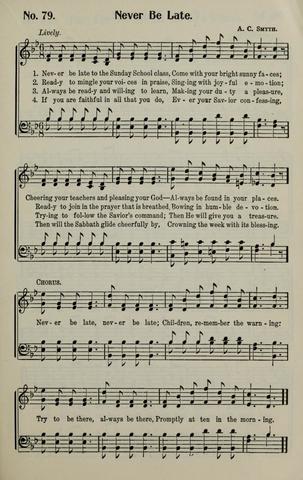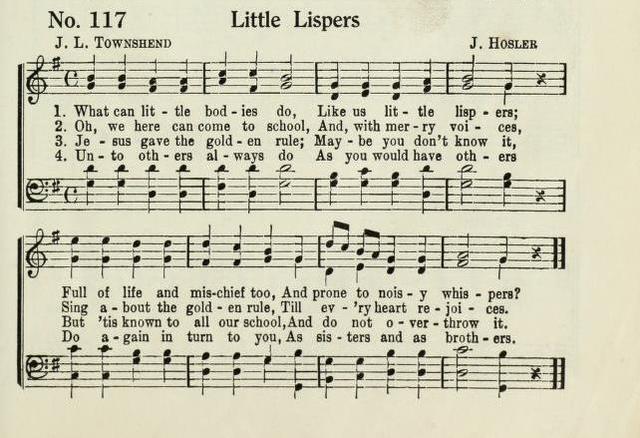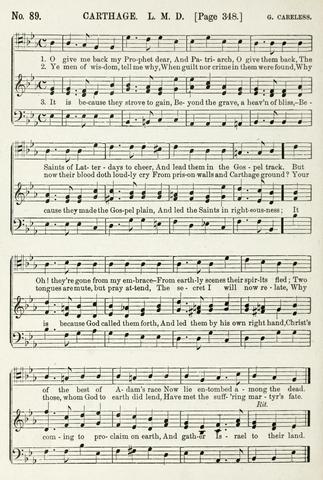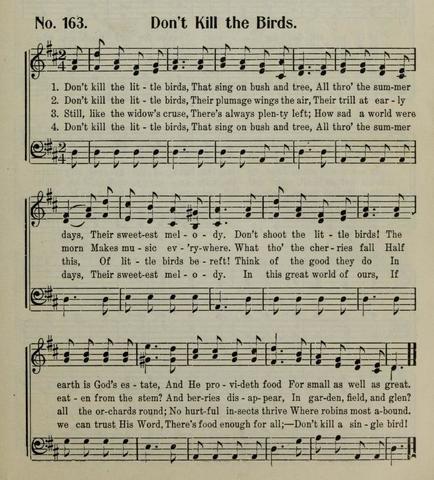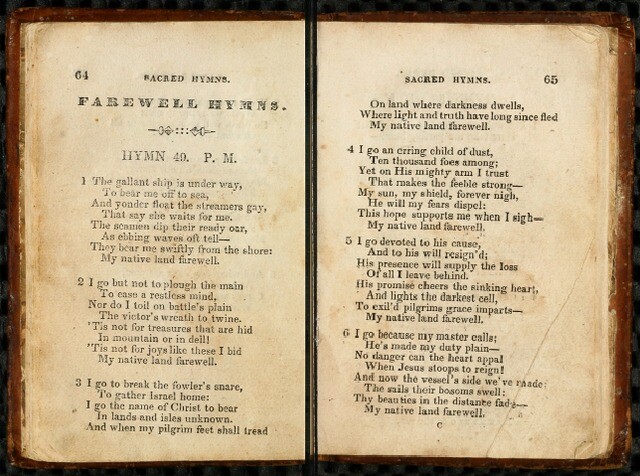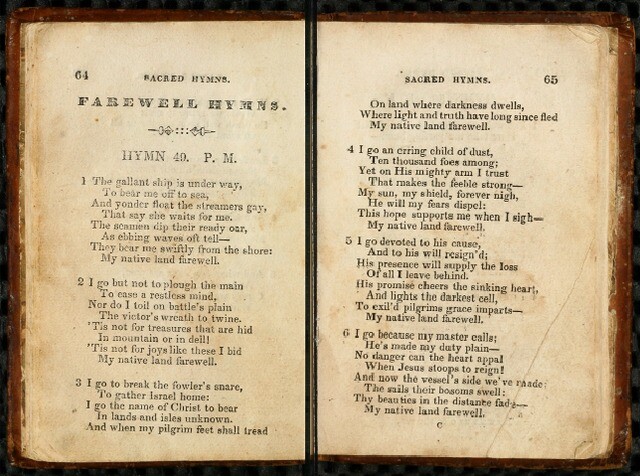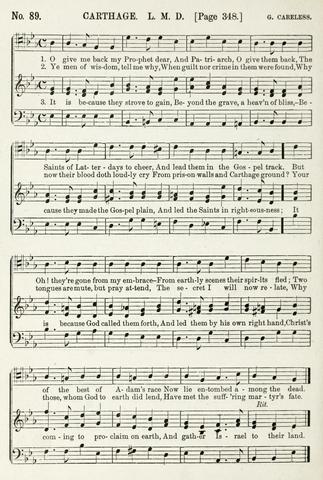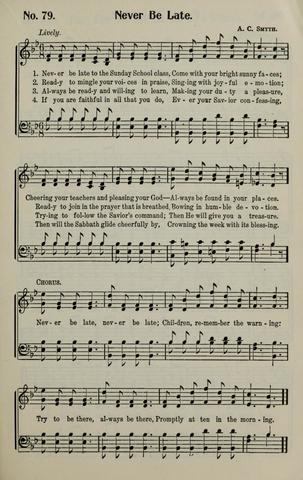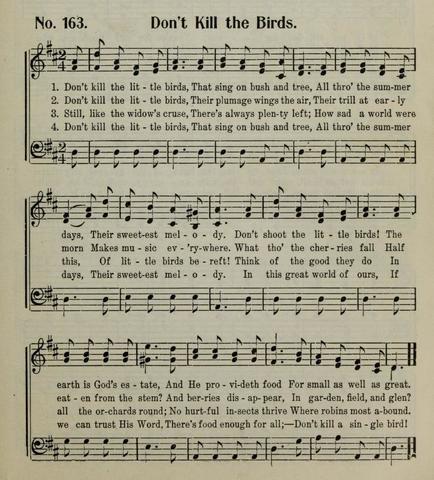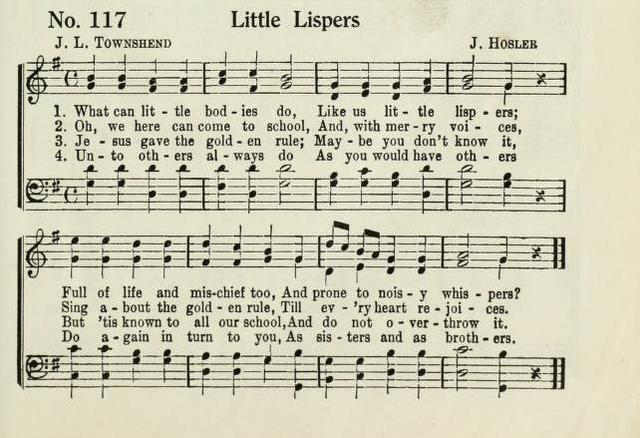The Church has used many different hymnals throughout its history. In July 1830, the Prophet Joseph Smith received the revelation known today as Doctrine and Covenants Section 25. In the revelation, the Lord instructed Emma Smith to compile a selection of sacred hymns for the Church. She completed a hymnal in 1835 with the assistance of William W. Phelps, a writer and newspaper editor. The collection of hymns included 90 hymn texts, with 39 hymns written by LDS poets as well as adaptations of several other non-LDS texts. The preface to the 1835 Collection of Sacred Hymns states:
“Notwithstanding the church, as it were, is still in its infancy, yet, as the song of the righteous is a prayer unto God, it is sincerely hoped that the following collection, selected with an eye single to his glory, may answer every purpose till more are composed, or till we are blessed with a copious variety of the songs of Zion.”
Since 1835, many more LDS hymns have been composed and included in various hymnbooks. The Church has published eight other major hymnal editions: The Manchester Hymnal (1840), The Psalmody (1889), Songs of Zion (1908), Deseret Sunday School Songs (1909), Hymns (1927), Hymns (1948), Hymns (1950), and the 1985 Hymns edition (currently in use).
Here are some interesting songs that were published in these historic hymnals but aren't included in the hymnbook today:
1. “The Gallant Ship Is Under Way”
Image from josephsmithpapers.org
This hymn, which was included in the 1835 Collection of Sacred Hymns, was often associated with departing missionaries and Mormon emigrants. The text for this hymn was adapted from a poem originally called “The Missionary Embarking,” attributed to the author “H.E.”
President Brigham Young sang this hymn when he departed from New York to serve a mission in England with the Quorum of the Twelve on March 9, 1840. He wrote:
“A large number of Saints came down to the wharf to bid us farewell. When we got into the small boat to go out to the ship, the brethren sang, ‘The gallant ship is under weigh [sic];’ we joined them as long as we could hear.”
2. “O Give Me Back my Prophet Dear” (listed here under the tune “Carthage”)
Image from archive.org
This text for this hymn, which was included in the 1889 Psalmody, was written by John Taylor in memory of the Prophet Joseph Smith and his brother Hyrum. It remained in LDS hymnbooks until 1985.
3. "Never Be Late"
Image from archive.org
This Primary song, first published in the 1888 Hymns and Sacred Songs for Children, teaches the importance of punctuality and concentration in Sunday School. It encourages children to “never be late, never be late . . . remember the warning: try to be there, always be there, promptly at ten in the morning.”
The composer, A.C. Smyth, also adapted the music for the hymn “Joseph Smith’s First Prayer” from a melody by Sylvanus Billings Pond.
4. "Don't Kill the Birds"
Image from archive.org
This hymn from the 1909 Deseret Sunday School Songs warns against the unnecessary shedding of blood. In 1978, President Spencer W. Kimball mentioned this hymn in his address at the October general priesthood meeting. He said:
“I read at the priesthood meeting at the last conference the words to the verse of the song years ago, ‘Don’t Kill the Little Birds,’ with which I was familiar when I was a child growing up in Arizona. I found many young boys around my age who, with their flippers and their slings, destroyed many birds. . . .
I suppose in every country in the world there are beautiful little birds with their beautiful plumage and their attractive songs. . . . It is not only wicked to destroy them, it is a shame, in my opinion. I think that this principle should extend not only to the bird life but to the life of all animals. For that purpose I read the scripture where the Lord gave us all the animals [see Gen. 1:20, 29–31]. Seemingly, he thought it was important that all these animals be on the earth for our use and encouragement” (Spencer W. Kimball, “Fundamental Principles to Ponder and Live,” October 1978 general conference).
5. "Little Lispers"
Image from archive.org
This Primary song, also included in the 1909 Deseret Sunday School Songs hymnal, was intended to encourage children, or “little lispers . . . prone to noisy whispers,” to use their youthful energy and “merry voices” to “sing about the golden rule, till ev’ry heart rejoices.”
► You'll also like: 10 Famous Writers and Composers in the Hymnbook
Lead image from josephsmithpapers.org
